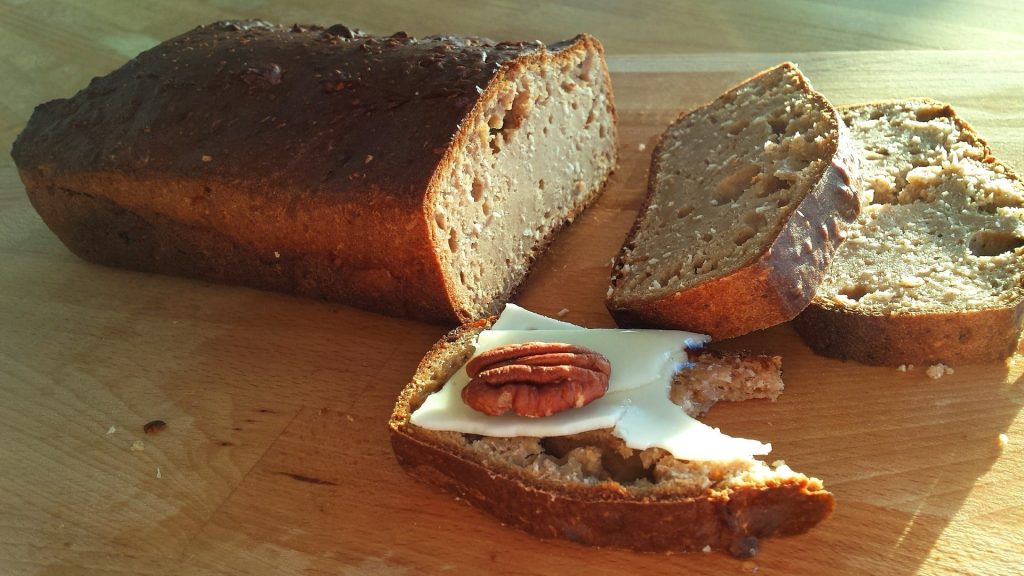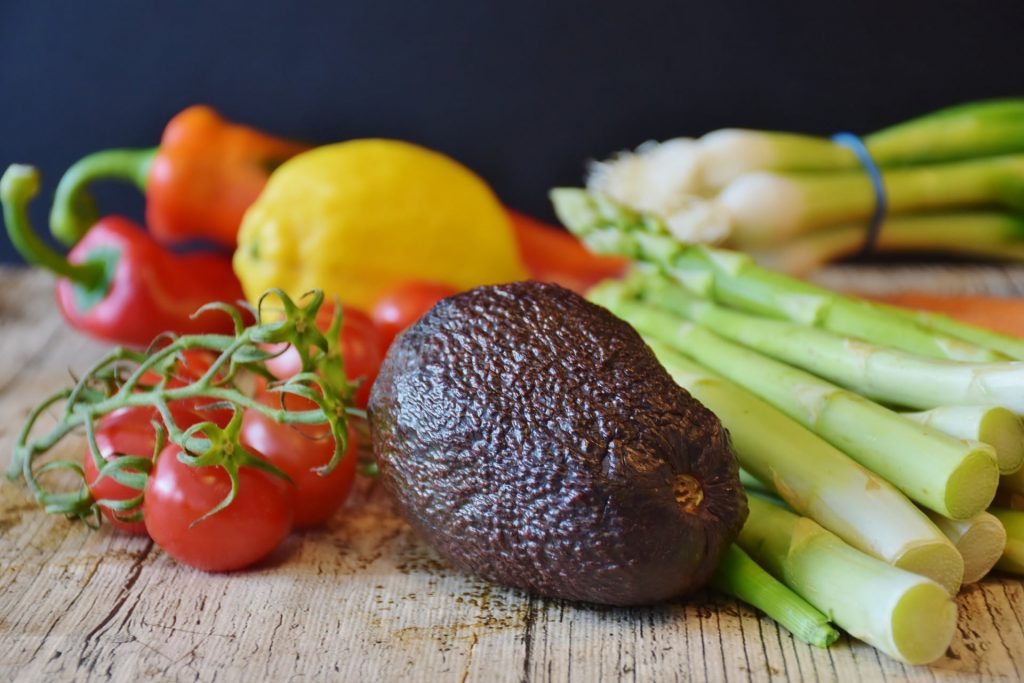There are two main types of carbohydrates:
1. Simple carbohydrates
2. Complex carbohydrates
What Are Simple Carbohydrates?
Simple carbohydrates are those carbohydrates that are easily digested by the body. If there is an intake of simple carbs, then the body breaks them down and uses it as energy quickly. Simple carbs can also be found in candies, cakes or anything which has processed sugar, these type of simple carbs which are obtained from refined sugar can also be converted into energy but they don’t have the required amount of fiber, minerals, and vitamins.
What Are Starchy Carbohydrates?
Grains are rich sources of carbohydrates. Grains include whole grains, millets, etc. Some foods that are naturally rich in carbohydrates are beans, potatoes, sweet potatoes, and some nuts. Cereals like rice are also a rich source of it.
What Are Fibrous Carbohydrates?
Fibrous carbs can be found in many fresh vegetables such as broccoli, carrot, tomatoes, pumpkins, cucumbers, etc.
What Are Complex Carbohydrates?
Complex carbohydrates are found in fresh fruits, vegetables, milk, honey, soy milk, barley, apples, oranges, grapes, wild rice, brown rice, etc.
They are good carbs as they have starch and fiber in them. Complex carbs don’t increase the level of sugar in the blood suddenly and make sure that the release of energy is gradual. These types of carbohydrates are most recommended for diabetics.

Summary: Sources of carbohydrates provided to us by nature in fruits and vegetables are healthy. Those that are created in a ‘factory’, like cookies and bread using refined flours are unhealthy and must be consumed only as per dietary needs and activity levels.
Carbohydrates Are Not The Root Cause Of Obesity
People often wonder that carbs are the main cause of obesity. But that’s not true. Humans have been consuming carbohydrates for 1000 years, in some form or the other. The obesity epidemic took place in 1980 and it was followed by Type 2 diabetes epidemic. Blaming new health problems on something that we’ve been eating for a very long time simply doesn’t make sense.
Restricting carbs may partly reverse obesity. But it is a proven fact that carbs are not the main cause of obesity. While it is true that added sugars and refined carbs are linked to increased obesity, the same is not true with the carbohydrates which are fiber-rich, whole-food sources. In fact, needlessly restricting carbs over a period of time, that too without consulting a medical expert can have an adverse effect on the body rather than benefits. Eating a balanced diet that is complete in all nutrients required by the body is key.
Tips For Adding Healthy Carbohydrates To Your Diet
1. Start the day with whole grains.
You must start your day with a bowl of hot cereal or with oats cooked the old fashioned way and not like oatmeal or you could also have cold cereal which has low sugar levels and lots of whole grains in it. A thumb rule you must know is that a portion of cereal that has at least 4 grams of fiber and has sugar less than 8 grams is good for health.
Also Read: Super Foods To Reduce Belly Fat | Best Diet To Shed Tummy Flab
2. Use whole grain bread for lunch or snacks.
Confused about how to find a whole-grain bread? Look for bread that lists one of the following as the first ingredient – whole wheat, whole rye, or some other whole grain or if you find a bread made only from whole grains (100% whole wheat bread), that is the best source of healthy carbohydrates.
3. Also, look beyond the bread aisle.
Even though whole wheat bread is good for lunch or snacks but it is made from refined and is high in sodium. Instead of bread, try a whole grain in salad forms such as brown rice or quinoa.
Related Reading: We review products over days, and sometimes weeks, so you can shop better.
4. Choose whole fruit instead of juice.
The reason why eating a whole fruit is better than having juice is that the fruit will have more fiber and half the amount of sugar that is present in juices.
5. Mix it up: Eat potatoes, and bring on the beans too.
Rather than fill up only on potatoes – which have been found to promote weight gain when consumed in large quantities – add fiber-rich veggies like beans for an excellent source of slowly digested carbohydrates as beans and other vegetables such as chickpeas are a great source of protein.
Summary: Tips To Include Healthy Carbs In Your Diet
Start the day with whole grains.
Use whole grain bread for lunch or snacks.
Choose whole fruit instead of juice
Mix it up: Eat potatoes, and bring on the beans too.

Sources Of Carbohydrates
Here is a list of 11 high-carb foods that also happen to be incredibly healthy.
1. Quinoa
Quinoa is highly nutritious. Its numerous health benefits include improved blood sugar control. Quinoa is also high in protein and fiber, so it may be useful for weight loss too.
2. Oats
Oats may be the most healthy food on the planet which has whole grain. They are a great source of many vitamins, minerals, and antioxidants. Oats contain many beneficial nutrients, including fiber and protein. Oats have been shown to lower blood sugar and cholesterol levels.
3. Bananas
Bananas are among the world’s most popular fruits. Bananas are high in potassium, which may help regulate blood pressure. Bananas which are not ripe are an excellent source of resistant starch and pectin and they also improve digestive health.
4. Sweet Potatoes
Sweet potatoes are a delicious, nutritious tuber. Sweet potatoes are an excellent source of provitamin A (from beta-carotene), as well as several other vitamins and antioxidants.
5. Beetroots
Beetroot is a vegetable that is reddish-purple in color and commonly known as beets. Beets have plant compounds, vitamins, and minerals in large quantities. They also have large amounts of inorganic nitrates which are responsible for better health and an increase in physical performance.
6. Oranges
Oranges are among the world’s most popular fruits. They are mainly composed of water and contain 11.8% carbs. Oranges are also a good source of fiber, vitamin C and active plant compounds.
7. Blueberries
Blueberries are incredibly delicious and phenomenally healthy. They are frequently marketed as a superfood due to their high amounts of plant compounds and antioxidants. They contain many vitamins, minerals, and antioxidants, and protect your body from oxidative damage.
Related Article: Benefits Of Low-Calorie Foods | Indian Low-Calorie Diet For Weight Loss
8. Grapefruit
Grapefruit is a fruit that has citrus with a mix of sweet, bitter and sour taste. Grapefruits have vitamins, plant compounds, and minerals. Consumption of grapefruit may help in weight loss and have multiple other health benefits.
9. Apples
Apples are a popular fruit with a sweet flavor and a distinctive crunchy texture. Apples have the required amount of antioxidants, vitamin C and plant compounds. Consumption of apples, may control the levels of sugar in the blood and cuts down the risk of some cancers and heart diseases.
10. Kidney Beans
Kidney bean is a variation of common bean. Kidney beans are a part of the family of legumes. They consist of antioxidants, minerals, and vitamins. Cooked kidney beans are also a good source of protein and are linked to several health benefits.
11. Chickpeas
Also known as garbanzo beans, chickpeas are part of the legume family. Chickpeas are a great source of proteins which are plant-based and they also consist of many minerals and vitamins. Eating chickpeas has been linked to benefits for heart and digestive health as well as cancer prevention.

Make The Right Choices
As a general rule, carbohydrates that are in their natural and fiber-rich forms are healthy, while those that have been stripped of their fiber are not. If a food item has only 1 ingredient, then it may be healthy as it does not depend on the content of the carbs in that food item. Carbohydrates can be classified as good or bad, but these are simply general guidelines.
It is a myth that carbohydrates are unhealthy. In fact, some of the healthiest foods in the world have a high content of carbohydrates. But anything in excess, especially processed, is bad for your health and the same applies in the case of carbohydrates. They should not be eaten in large amounts if you’re on a low-carb diet, but they can work as an important nutrient source.












